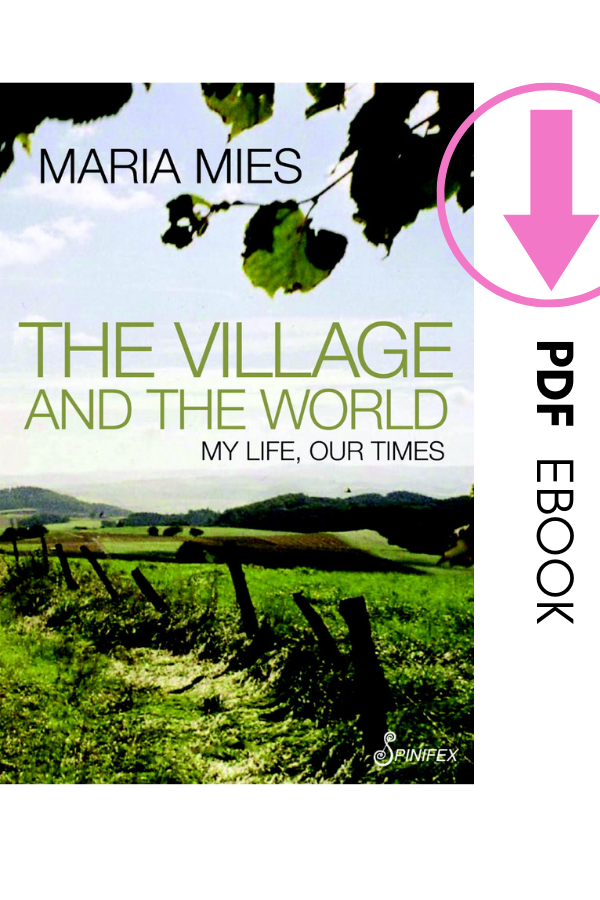Reviews
This book by one of the world’s great feminist philosophers and visionary voices over the last four decades, offers us far more than personal autobiography, as engrossing as it is. For Maria Mies, there was never a separation between feminism and the other great struggles of recent years: against economic and social injustice, the ravages of globalized capital, the debilitating prejudices and controls of dominant religions, and the advancing assault on traditional, sustainable cultures and ways of life, including those of her own childhood in rural Germany.
—Jerry Mander, Founder, International Forum on Globalization
A beautiful journey between two remote poles: The Self and the World. The subtle connection between facts and fiction, autobiography and novel, between the personal, the political, the economic, the historical, the global and local. This book by Maria Mies is inspiring and creative, I hope many people read it.
—Nawal El Saadawi
I am so glad Maria Mies has written the story of her life… Maria has carried the village in her mind and heart, taking this other imagination to an alienated and uprooted world. Her rootedness has given her the conceptual clarity most academics lack. And it is this clarity which is a gift to the world.
—Vandana Shiva
An exciting book that doesn't just tell her life story, but also conveys an important point of time and women's history.
—Virginia
Maria Mies has written a personal story that will encourage others to fight for "the good life".
—Barbara Linnenbrügger, Beziehungsweise Weiterdenken, Germany
While this book is rooted in the western rural situation, it has bridged vast distances, especially with the Indian subcontinent. The author has lived her life with an open mind, and enthusiasm for social justice and people's participation.
—Gabriele Dietrich, Economic & Political Weekly





